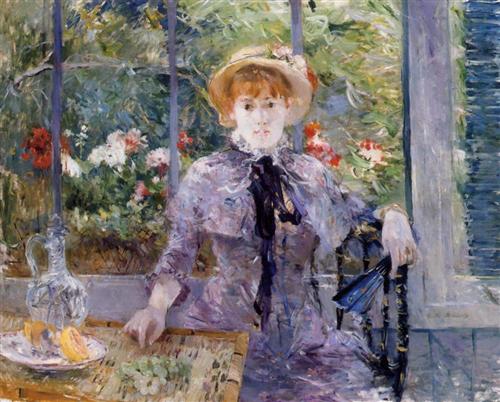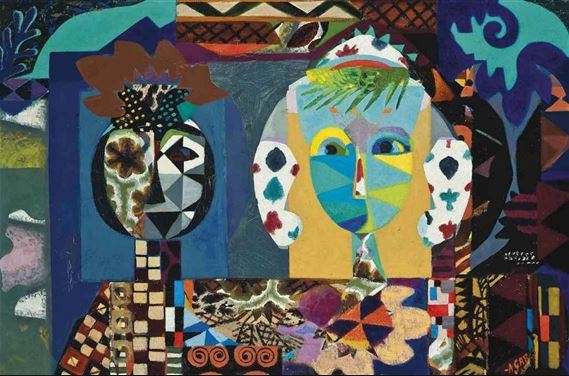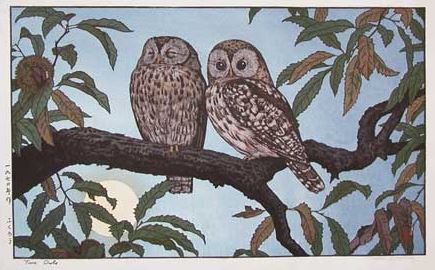Zou iemand vragen ‘Hoe ziet iemands Boeddha-geest er uit?’ dan zou ik antwoorden: ‘In de bomen spelen vissen, in de diepe zee vliegen vogels.’
beste luisteraars,
wat is het dat antwoordt?
Een monnik vroeg: Waar kan ik de geest zoeken die niet in woorden, namen of vormen te vatten is?
Bassui riep daarop meteen tot hem: ‘Eerwaarde monnik!’ Toen de monnik antwoordde zei de meester:
‘Wat is het dat antwoordt?’
Vrij vertaald naar: Mud and water- the collected teachings of zen master Bassui, Arthur Braverman, Wisdom Publications, Somerville, 2002; p117. Afbeelding: Lewis Carroll with Alice, Eileen Agar, 1961.
de waarde van kennis
When the aspiring heart is shallow, lack of knowledge becomes an obstacle to the ignorant, and knowledge becomes an obstacle to the educated. When the aspiring heart is deep, knowledge becomes the basis for understanding the Way for the learned, and lack of knowledge becomes the basis for understanding the Way for the uneducated.
The Way is not a matter of knowing or not knowing. Just abandon everything, return to yourself, and look within. Who is this? Spare no time. It waits for no one.
Bassui Tokushō
3 delusions: opinion, emotion and speech
“Tōzan said*: … ‘there are three kinds of lingering delusions. They are the lingering delusions of opinion, emotion, and speech.
With lingering delusions of opinion, one can’t separate himself from the domain of the thinking mind and hence falls into the poisonous ocean.
With lingering delusions of emotion, one always looks at things from the standpoint of the intellect, becoming narrow-minded and biased.
With lingering delusions of speech, one loses sight of the wonderful teaching of the true nature of things and becomes blinded to its true activity. Please consider these three lingering delusions carefully.’
One who has not yet exhausted these lingering delusions will be stained by the two aspects — existence and emptiness — and will not find freedom anywhere.”
Bassui Tokushō (1327–1387)
bassui tokushō
The fourteenth-century Zen master Bassui (1327–1387) was recognized as one of the most important Zen teachers of his time. Like the revered Master Dogen several generations before him, Bassui was dissatisfied with what passed for Zen training, and taught a radically reenergized form of Zen, emphasizing deep and direct penetration into one’s own true nature. And also like Dogen, Bassui uses powerful and often poetic language to take familiar Buddhist concepts recast them in a radically non-dual Zen light, making ancient doctrines vividly relevant.
About the book ‘Mud and Water, The Collected Teachings of Zen Master Bassui’, translated by Arthur Braverman: Accessible and eloquent, these teachings cut to the heart of the great matter of Zen, pointing directly to the importance of seeing our own original nature and recognizing it as Buddhahood itself. Bassui is taking familiar concepts in Buddhism and recasting them in an essential Zen light.
Though he lived centuries ago in a culture vastly different from our own, Zen Master Bassui speaks with a voice that spans time and space to address our own modern challenges—in our lives and spiritual practice. – Wisdom Publications



